Podcast: Play in new window | Download
Subscribe: Apple Podcasts | Podcast Index | RSS | More
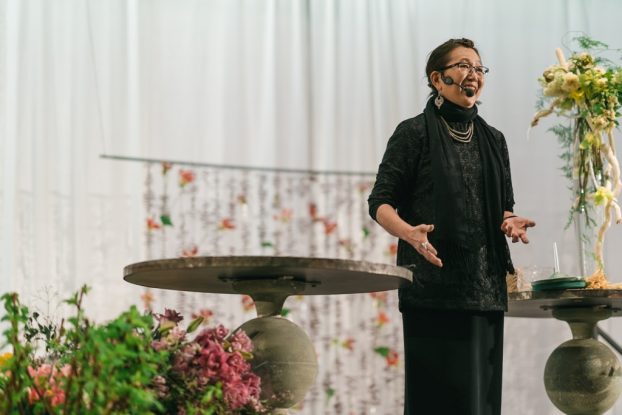
Hitomi in her element, while sharing her knowledge and enthusiasm about floral artistry. (c) Colin Gilliam
I first met Hitomi Gilliam in 2012 when I visited a downtown Vancouver, B.C. floral exhibition called NEOFlora.
As I wrote at the time: I stumbled across the NEOflora badge on Facebook when I noticed that the very talented Arthur Williams, a Denver floral designer and owner of Babylon Floral who is profiled in The 50 Mile Bouquet, posted a comment that he was going to attend and contribute one-of-a-kind designs at the event.
A little digging led me along a trail of links, where I discovered the news that NEOflora was taking place over a seven-day period at the end of October 2012. And as it turned out, I was heading north to Vancouver for a few days with a girlfriend and we made sure to check it out. Here’s a link to the blog post about my visit.
The idea of a group of floral artists coming together to create a pop up flower shop on one of the city’s busiest shopping streets sparked my imagination. What a refreshing way to promote flowers as MORE than a commodity you find at the mass-market retailer or supermarket.
According to Hitomi, “NEOflora was a collaborative association of forward-thinking florists who wanted to appeal to the new consumer who may not be accustomed to buying flowers.”
That’s where I met Hitomi and she agreed to let me shoot a video interview, which you can watch below:
Most of the flowers used for NEOflora, including those featured on the runway, were donated by several members of the United Flower Growers Cooperative, the major wholesale flower auction house based in Vancouver.
When I asked Hitomi about the event’s emphasis on locally-grown flowers, she pointed out that about 90-percent of the flowers used in NEOflora’s pop-up up project were BC-grown. She underscored this point:
“that’s what the consumer is looking for – local & organic”
Recently, a few of my flower friends began pursuing the European Masters Certification, a program launched six years ago by Hitomi and Thomas De Bruyne — and I began to hear more about that exciting professional distinction and the lovely creative connections being made.
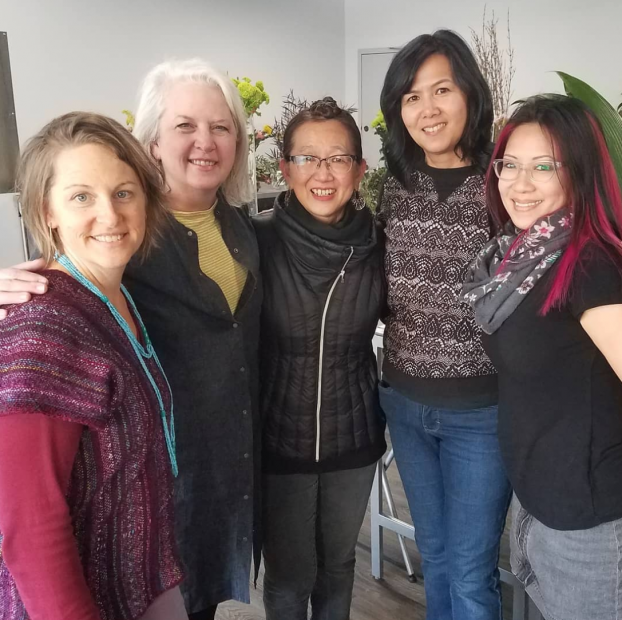
Tobey Nelson (left) posted this fun photo of our visit to meet Hitomi at United Floral in Vancouver, B.C. From left: Tobey Nelson, Debra Prinzing, Hitomi Gilliam, and two of Hitomi’s frequent assistants, designers Susanne Law and Brenna Quan
EMC student Tobey Nelson of Tobey Nelson Events and Design, last week’s podcast guest, invited me to travel from Seattle to Vancouver at the end of February to spend a day with Hitomi. Tobey had a notion that Hitomi and I could together bridge our two worlds — and in retrospect, I think she was quite prescient, because by the end of our time together in Vancouver our collective heads were spinning with ideas.
Since I first met Hitomi in 2012, I’ve followed her activities through Facebook and watched all that she’s doing to elevate and professionalize the art of floristry. But other than saying hello last summer when she co-presented with Arthur Williams at the AIFD Symposium in Seattle, I hadn’t be able to spend any time with her.
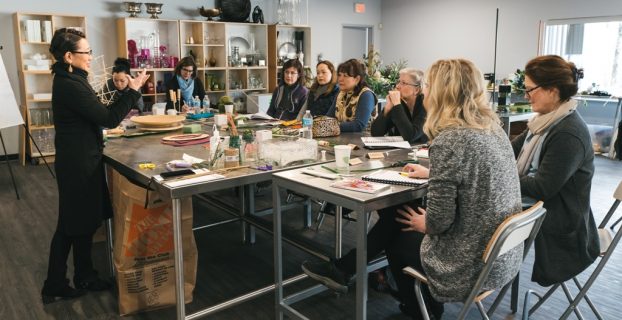
Hitomi teaching the Creative Design Master Class at United Floral’s new education center. (c) Colin Gilliam
Our road trip offered a rare chance to take a 48-hour work-cation totally devoted to flowers and our mutual passion for flower growing and designing. And it was also rare that Hitomi was home in British Columbia, where she lives on beautiful Bowen Island, and where her many educational projects are based as part of Design 358, an event and education business she co-owns with Colin Gilliam, her talented son.
We met up with Hitomi at the new education center that’s inside the United Floral building in an industrial area of Vancouver. The giant complex is also home to the famed Dutch-style flower auction, a cooperative of BC floriculture growers who operate as United Flower Growers.
Hitomi was setting up for a three-day Creative Design Master Class that attracted students from all around North America eager to study mechanics, techniques and floristry in a small-group setting. With Tobey’s help, Hitomi was getting things ready, and I managed to grab about 30 minutes of an audio conversation to introduce you to Hitomi. While she is a luminary in the world of floral design, Hitomi is deeply rooted in horticulture and she works closely with growers and flower farmers, which I believe greatly influences her art and her platform.
Listen closely to details about the upcoming series of Hitomi’s educational events taking place in a few weeks as part of her partnership with United Floral. I’ll have all the details and links at today’s show notes at debraprinzing.com — and who knows? You might have time to take a trip to Vancouver to participate or observe the PNW Design Competition on March 17th, a qualifier event for the 2018 Gateway to the America’s Cup, with one U.S. and one Canadian winner selected. And stick around for “In The Making,” an inspirational series of wedding design workshops and a Project Runway-style bridal trends show, March 18-20, also hosted by Hitomi and United Floral.
Before we get started, here’s a little more about Hitomi, according to her bio:
Hitomi says her biggest pleasure in life is ‘SHARING EVERYTHING I KNOW’!
Hitomi Gilliam AIFD is a Japanese Canadian floral artist, keynote lecturer, demonstrator, educator and a consultant in all aspects of the Art and Business of Floral Design. She is the Creative Director for DESIGN358 (2008). She has guest-designed extensively throughout North America, England, Japan, Mexico, Taiwan, Bermuda, Singapore, Hong Kong, Australia, New Zealand, Colombia, Belgium, Korea and India.
She owned and operated Satsuki’s Florist in Mission, British Columbia for 28 years. She currently works with her son, Colin Gilliam in an Event & Education business, DESIGN358 which was established 8 years ago.
Hitomi has lectured at Art Gallery of Ontario (Toronto), Chicago Botanical Gardens, Philadelphia Museum of Art, Cheekwood Botanical Gardens (Nashville), Museum of Fine Art Boston, Minneapolis Institute of Art, Bouquets to Art (San Francisco), Houston Museum of Fine Art, New Orleans Museum of Fine Art, Cleveland Botanical Gardens, Honolulu Academy of Art, Everson Museum of Art (Syracuse), The Walters Art Museum (Baltimore), Longwood Gardens, Virginia Museum of Fine Art, Lewis Ginter Botanical Gardens (Richmond,VA), Detroit Institute of Arts, Vero Beach Museum of Fine Arts, The Strong Museum (Rochester, NY), North Carolina Museum of Art (Raleigh, NC) and Columbus Museum of Fine Art. She has also presented at the Philadelphia Flower Show, Newport Flower Show and Singapore Garden Festival. Hitomi is the founding organizer of the Annual ‘Survival of the Creative Minds’ Conference in Taos, New Mexicol
Follow Hitomi at these social places:
Watch Hitomi’s YouTube Channel
 The Slow Flowers Podcast has been downloaded more than 290,000 times by listeners like you. Thank you for downloading, listening, commenting and sharing — it means so much.
The Slow Flowers Podcast has been downloaded more than 290,000 times by listeners like you. Thank you for downloading, listening, commenting and sharing — it means so much.
If you haven’t received the March issue of our Slow Flowers Newsletter, you can find a link here. In this edition, you’ll find interviews with all the presenters at the upcoming Slow Flowers Summit on Friday, June 29th in Washington, D.C.
And you’ll learn about Slow Flowers in the News, the Slow Flowers Podcast archive for last month, the upcoming Slow Flowers events that you can attend, and more. Be sure to follow the Subscribe link if the newsletter isn’t currently landing in your in-box.
As the Slow Flowers Movement gains more supporters and more passionate participants who believe in the importance of the American cut flower industry, the momentum is contagious. I know you feel it, too. I value your support and invite you to show your thanks and with a donation to support my ongoing advocacy, education and outreach activities. You can find the donate button in the right column of our home page.
Thank you to our sponsors who have supported Slow Flowers and all of our programs including this podcast, American Flowers Week, the Slowflowers.com online directory to American grown flowers, as well as our new channels, Slow Flowers Journal and the 2018 Slow Flowers Summit.
They are:
And thank you to our lead sponsor for 2018, Florists’ Review magazine. I’m delighted to serve as Contributing Editor for the new monthly Slow Flowers Journal, found in the pages of Florists’ Review. It’s the leading trade magazine in the floral industry and the only independent periodical for the retail, wholesale and supplier market. Take advantage of the special subscription offer for members of the Slow Flowers Community.
Certified American Grown Flowers. The Certified American-Grown program and label provide a guarantee for designers and consumers on the source of their flowers. Take pride in your flowers and buy with confidence, ask for Certified American Grown Flowers. To learn more visit americangrownflowers.org.
Arctic Alaska Peonies, a cooperative of passionate family farms in the heart of Alaska providing bigger, better peony flowers during the months of July and August. Visit them today at arcticalaskapeonies.com
Seattle Wholesale Growers Market, a farmer-owned cooperative committed to providing the very best the Pacific Northwest has to offer in cut flowers, foliage and plants. The Growers Market’s mission is to foster a vibrant marketplace that sustains local flower farms and provides top-quality products and service to the local floral industry. Find them at seattlewholesalegrowersmarket.com
Longfield Gardens provides home gardeners with high quality flower bulbs and perennials. Their online store offers plants for every region and every season, from tulips and daffodils to dahlias, caladiums and amaryllis. Visit them at longfield-gardens.com.
Syndicate Sales, an American manufacturer of vases and accessories for the professional florist. Look for the American Flag Icon to find Syndicate’s USA-made products and join the Syndicate Stars loyalty program at syndicatesales.com.
Johnny’s Selected Seeds, an employee-owned company that provides our industry the best flower, herb and vegetable seeds — supplied to farms large and small and even backyard cutting gardens like mine. Check them out at johnnysseeds.com.
Association of Specialty Cut Flower Growers. Formed in 1988, ASCFG was created to educate, unite, and support commercial cut flower growers. It mission is to help growers produce high-quality floral material, and to foster and promote the local availability of that product. Learn more at ascfg.org.
I’m Debra Prinzing, host and producer of the Slow Flowers Podcast. Next week, you’re invited to join me in putting more American grown flowers on the table, one vase at a time. And If you like what you hear, please consider logging onto Itunes and posting a listener review.
The content and opinions expressed here are either mine alone or those of my guests alone, independent of any podcast sponsor or other person, company or organization.
The Slow Flowers Podcast is engineered and edited by Andrew Brenlan. Learn more about his work at soundbodymovement.com.









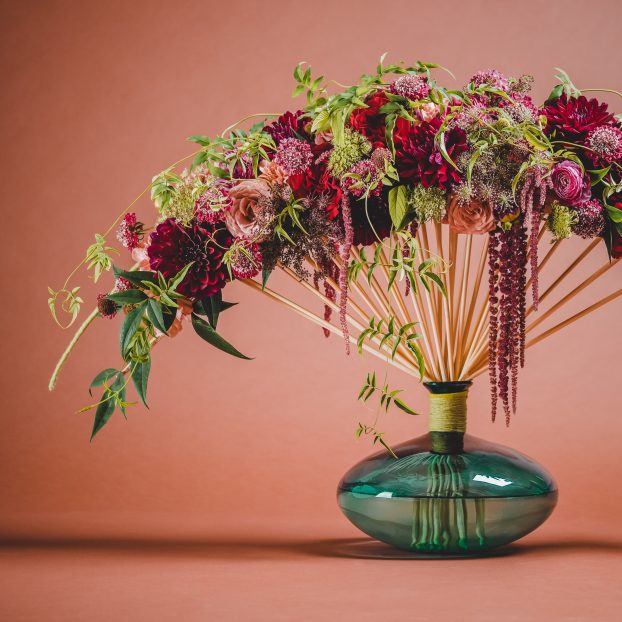
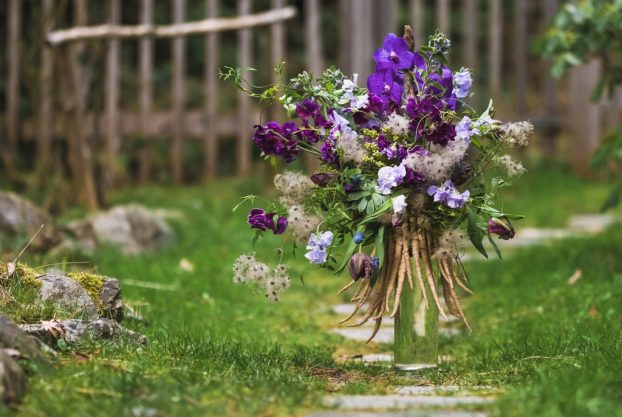
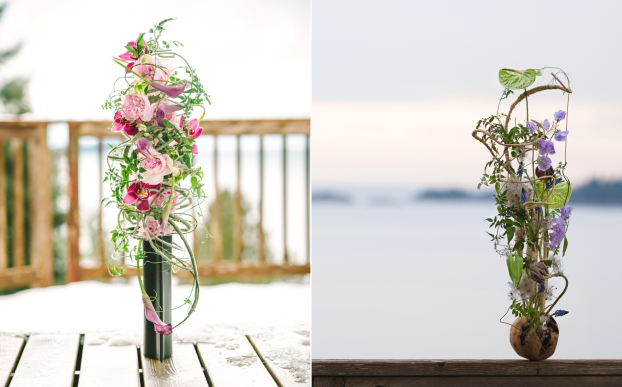
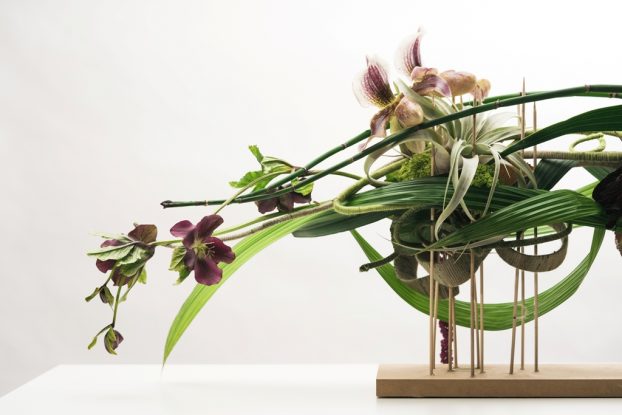
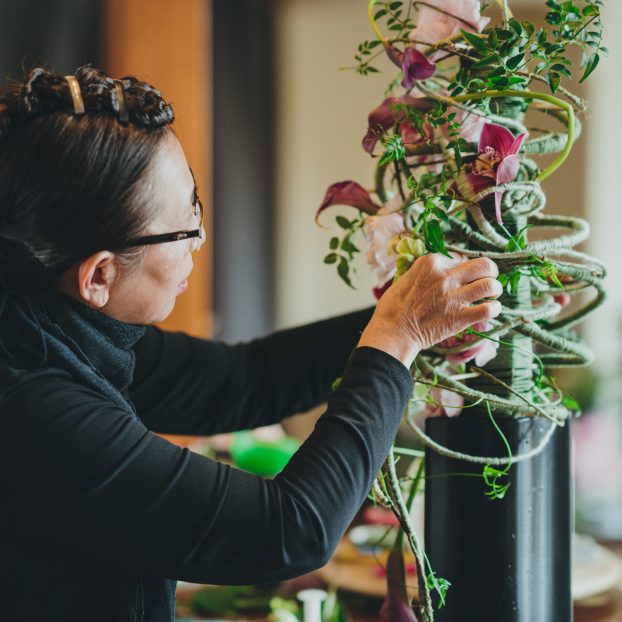
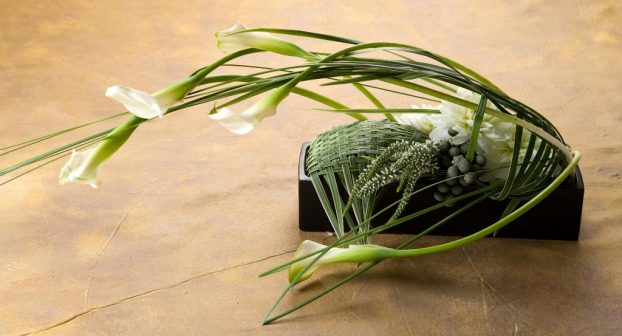
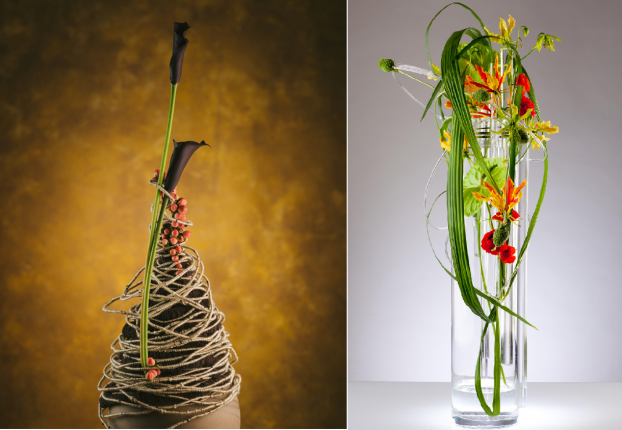

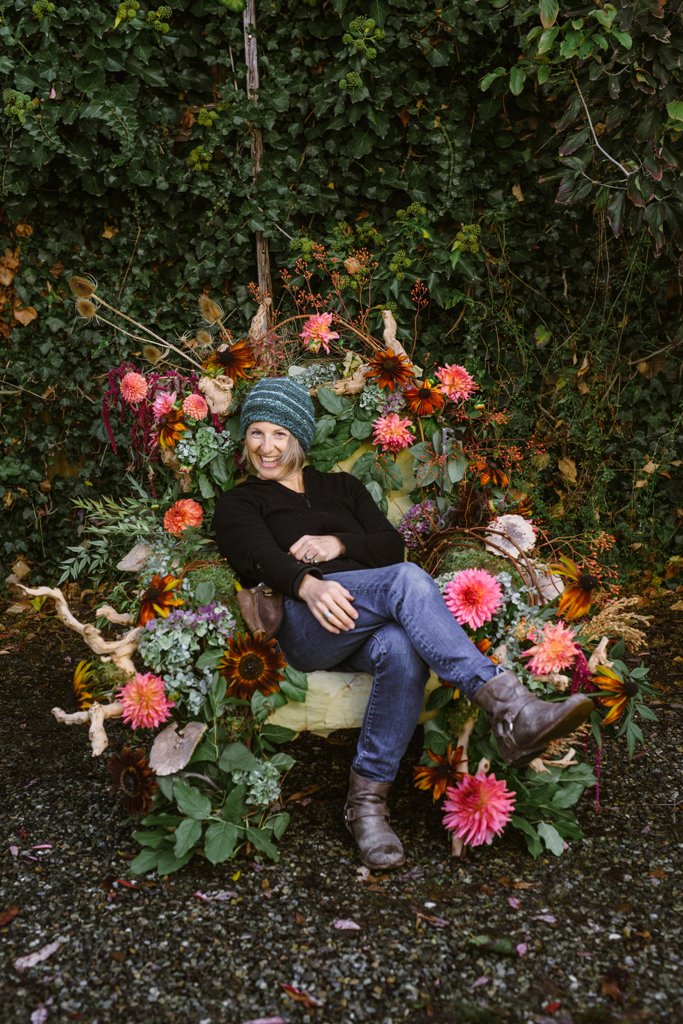

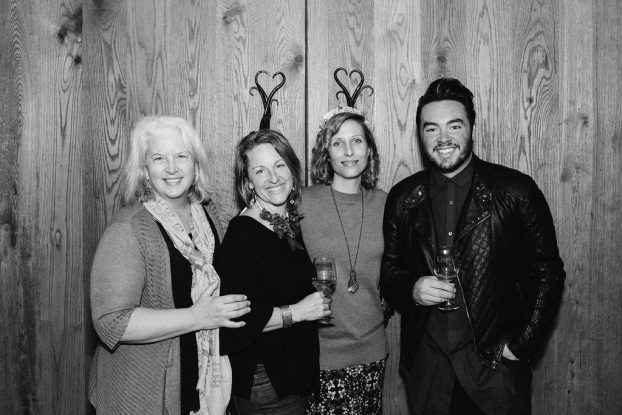
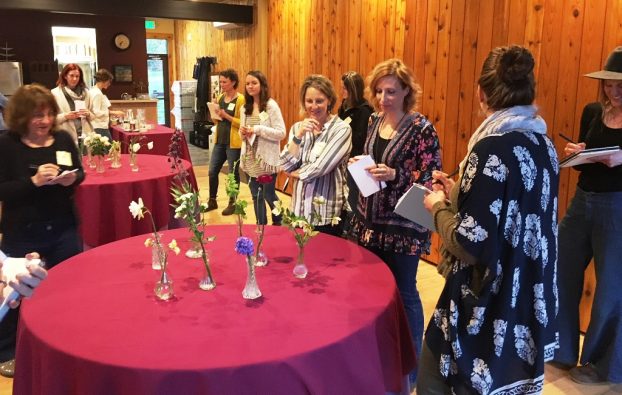
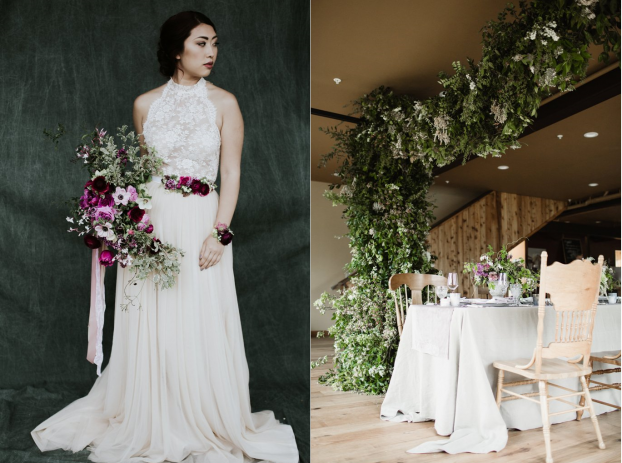
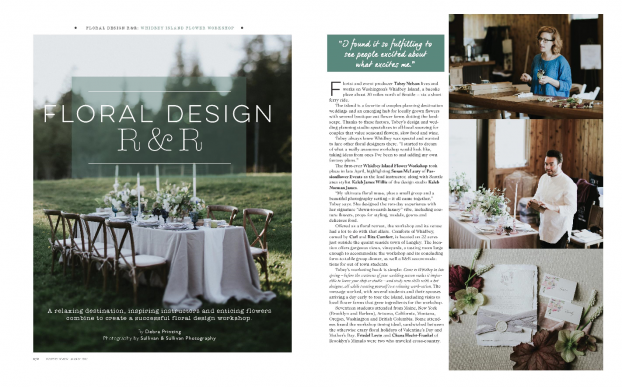
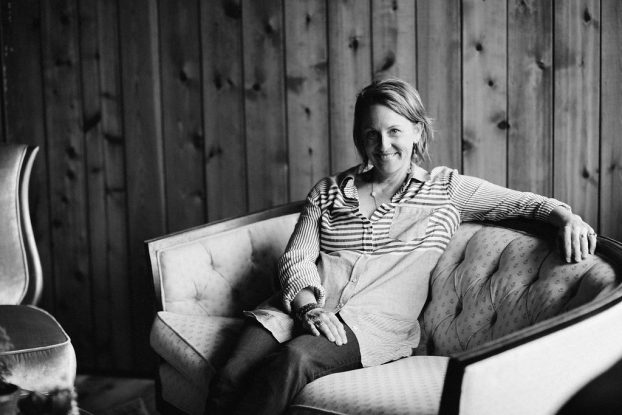
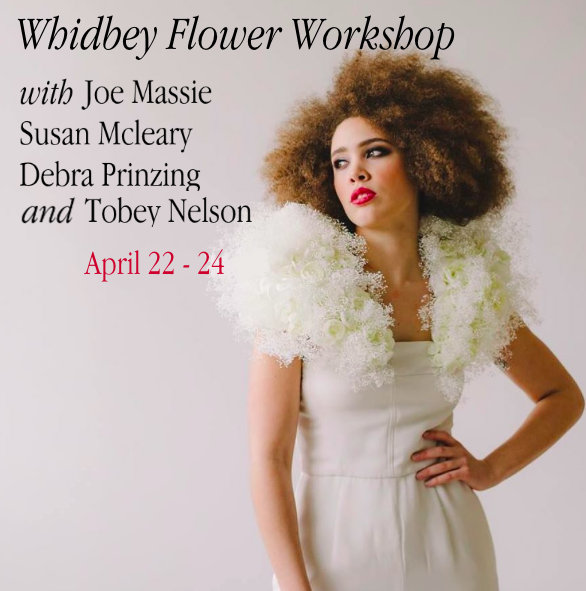
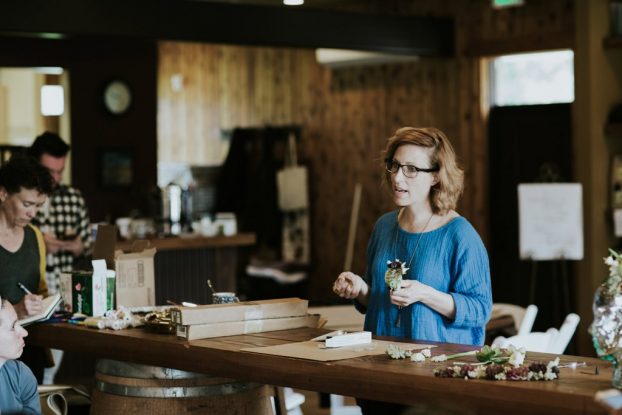
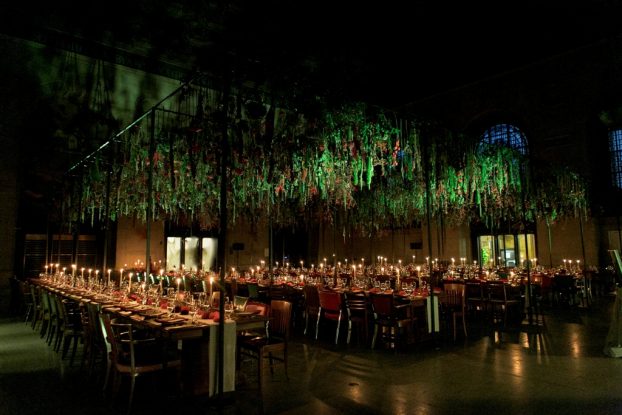
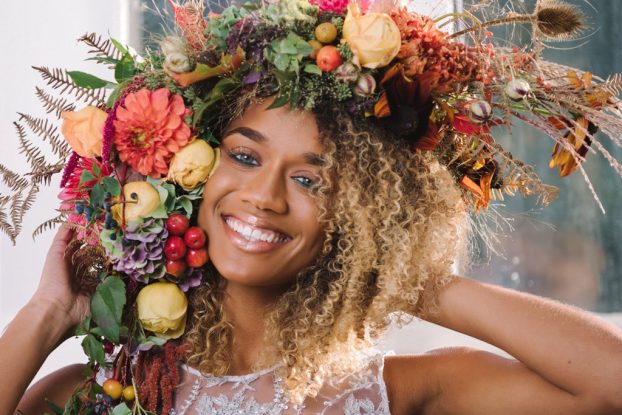


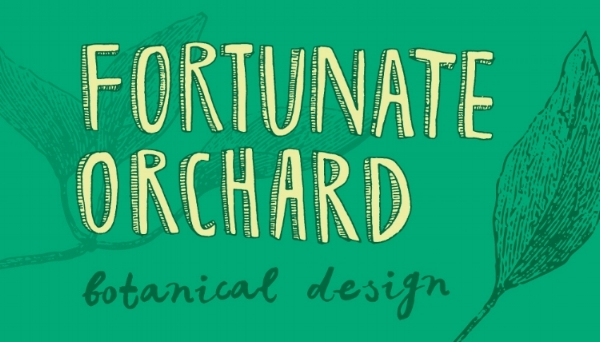

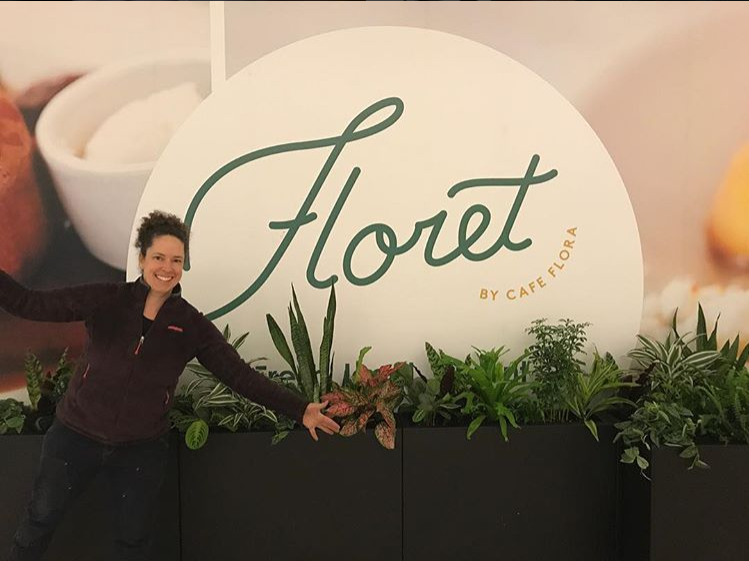
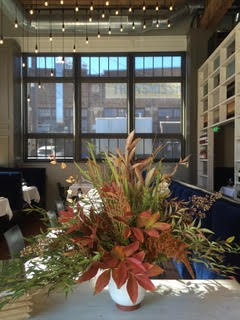
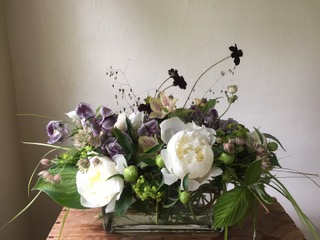

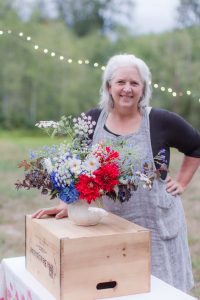
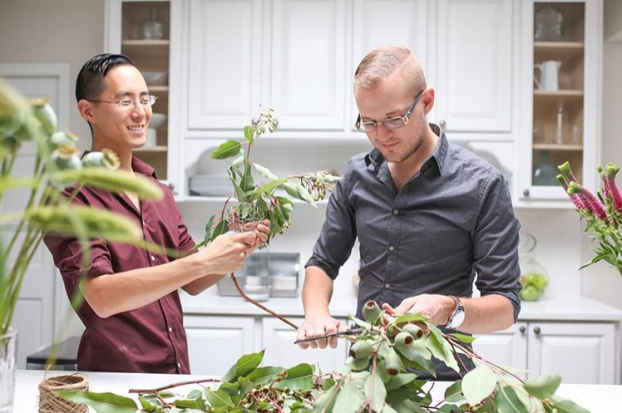
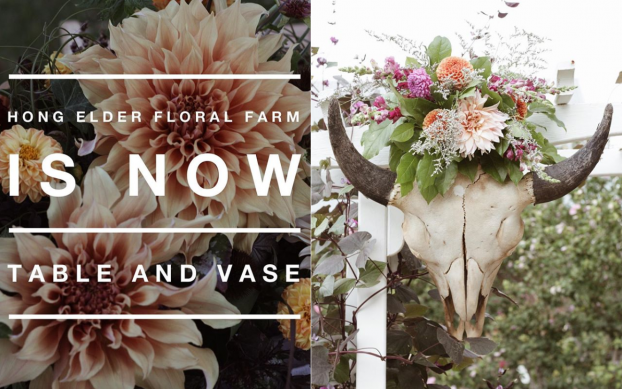
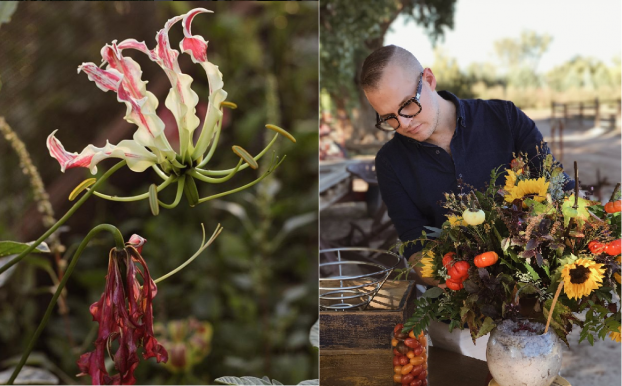
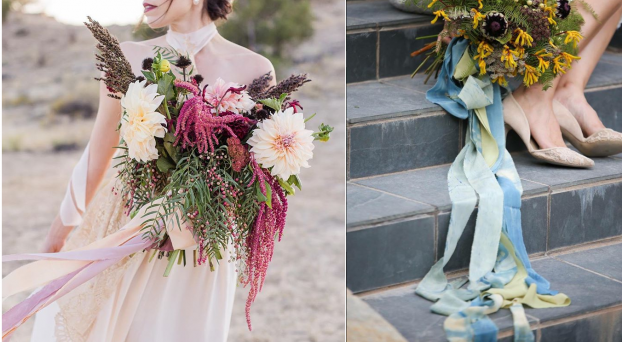
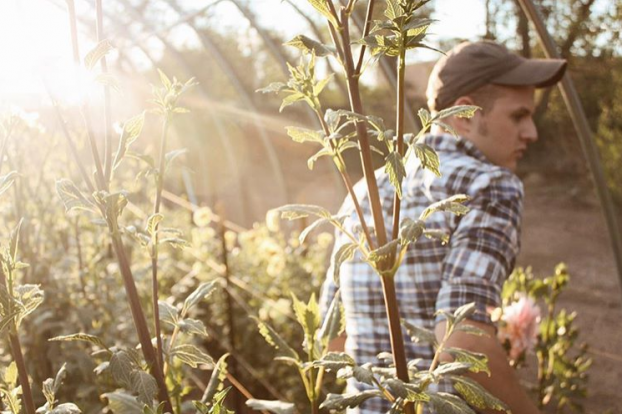
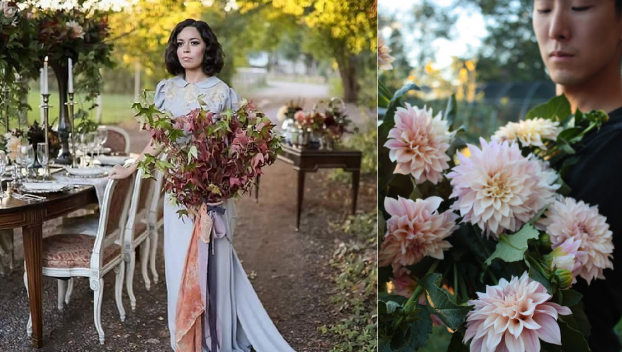
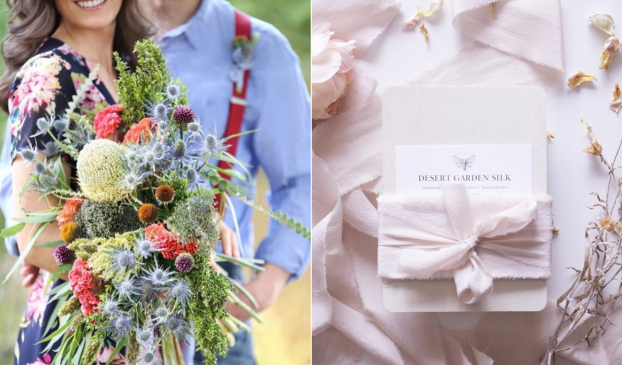
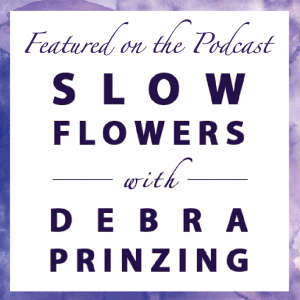
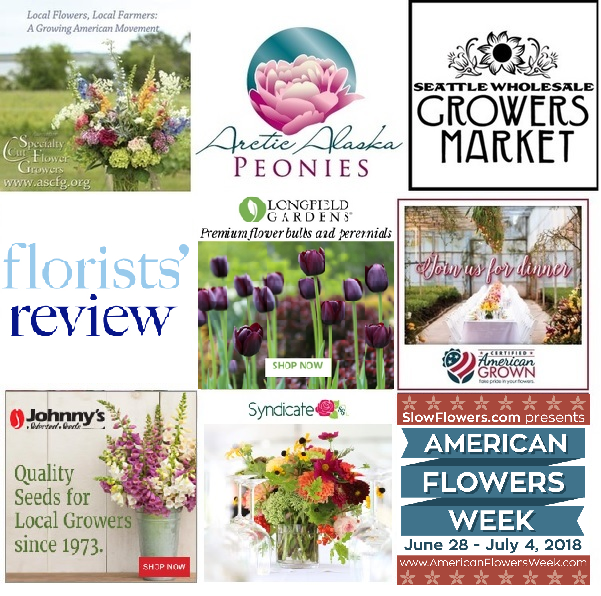
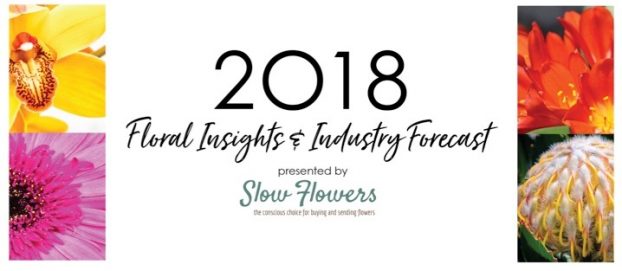

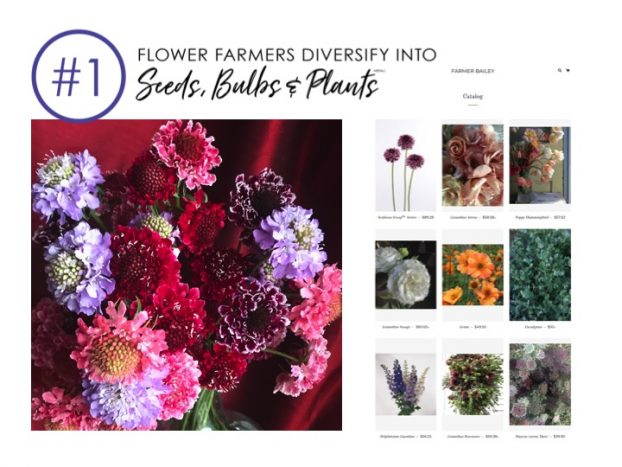
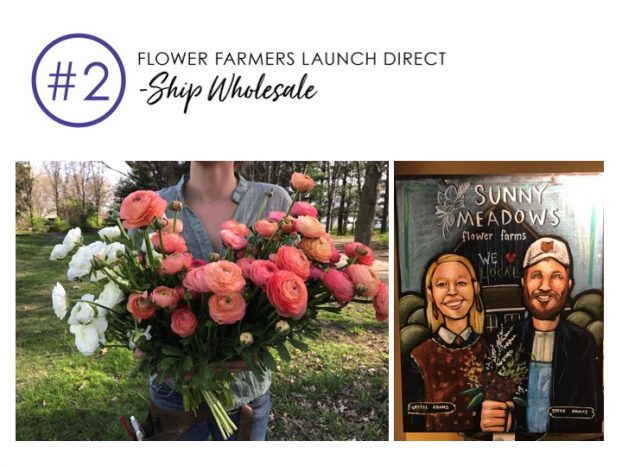
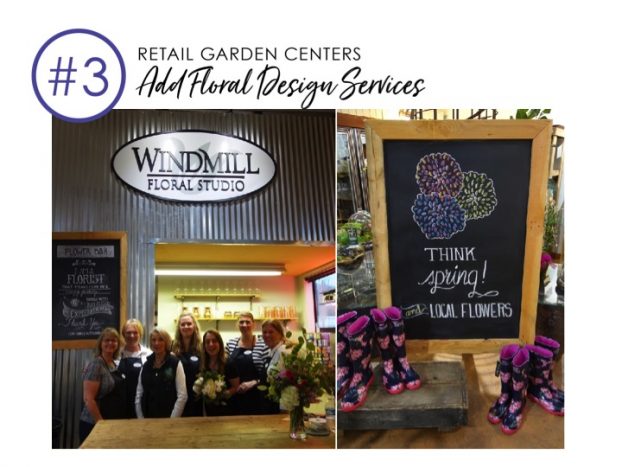
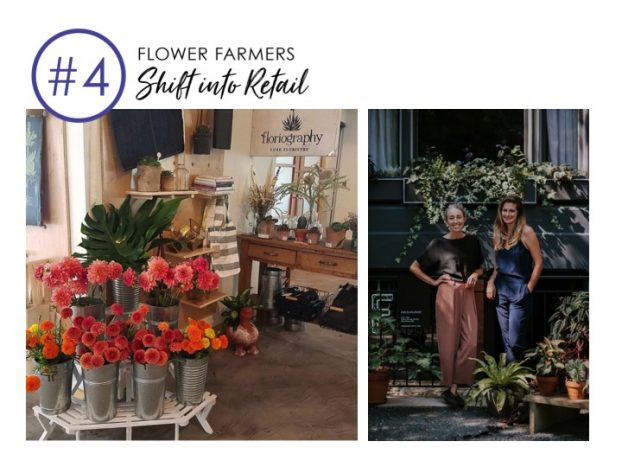
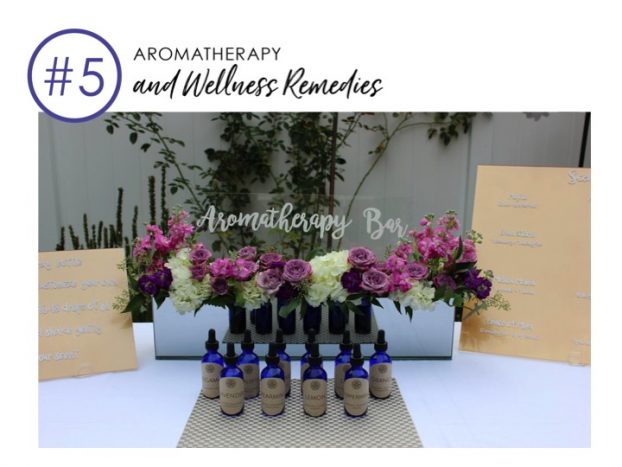
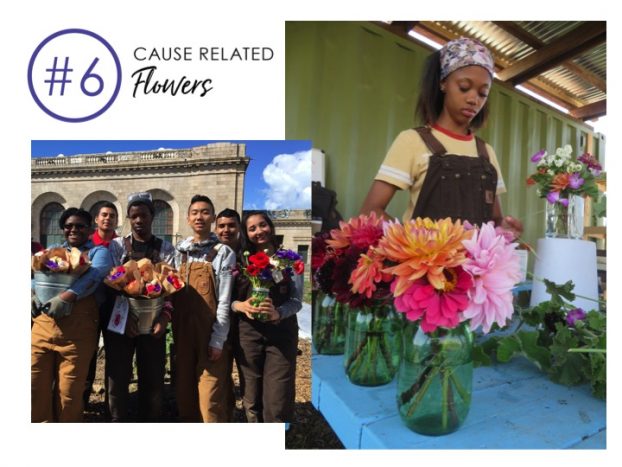
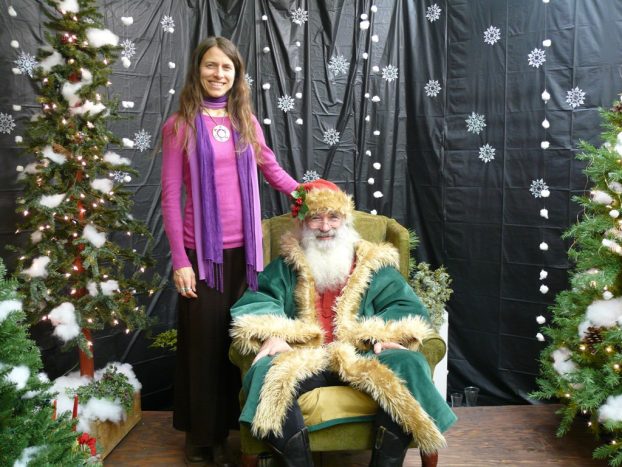

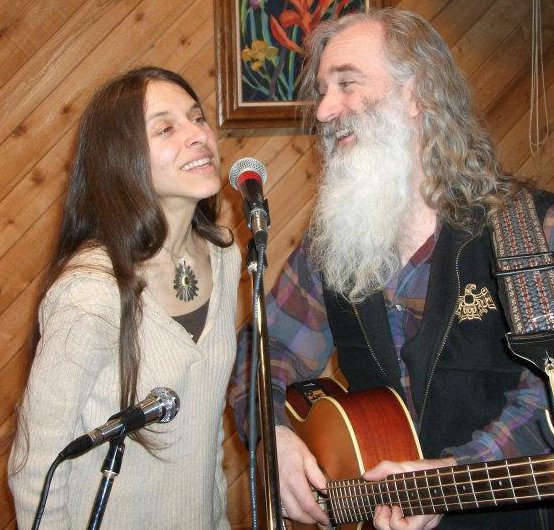
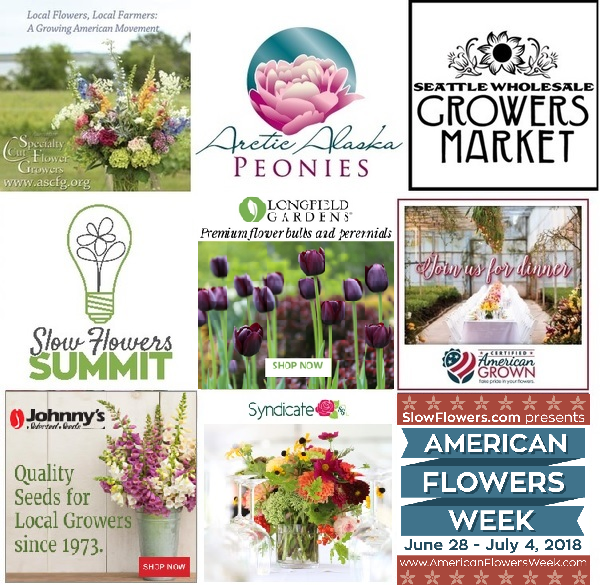
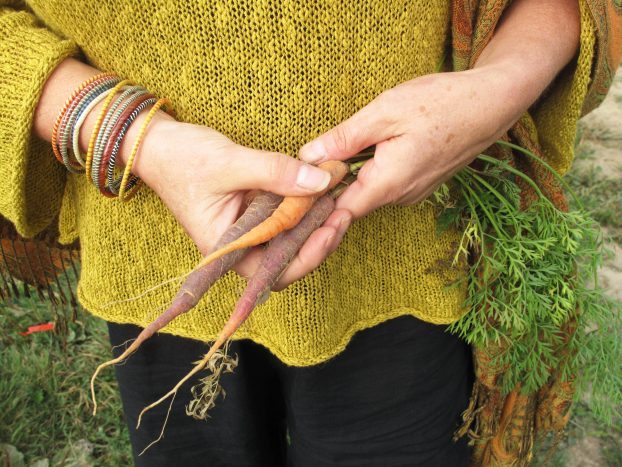
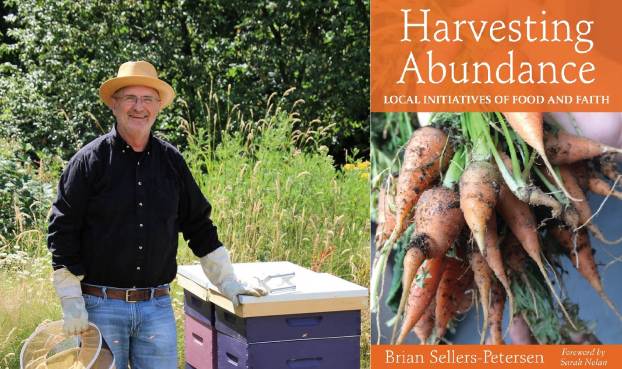
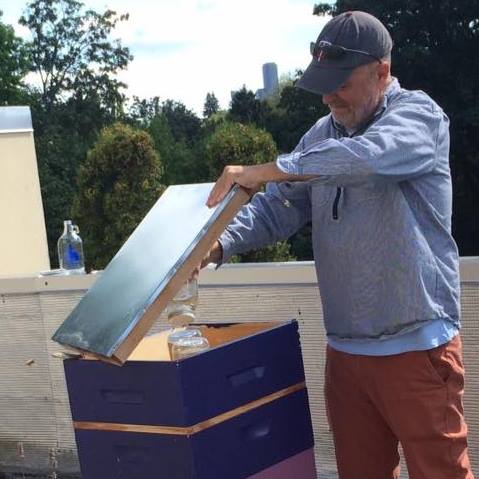

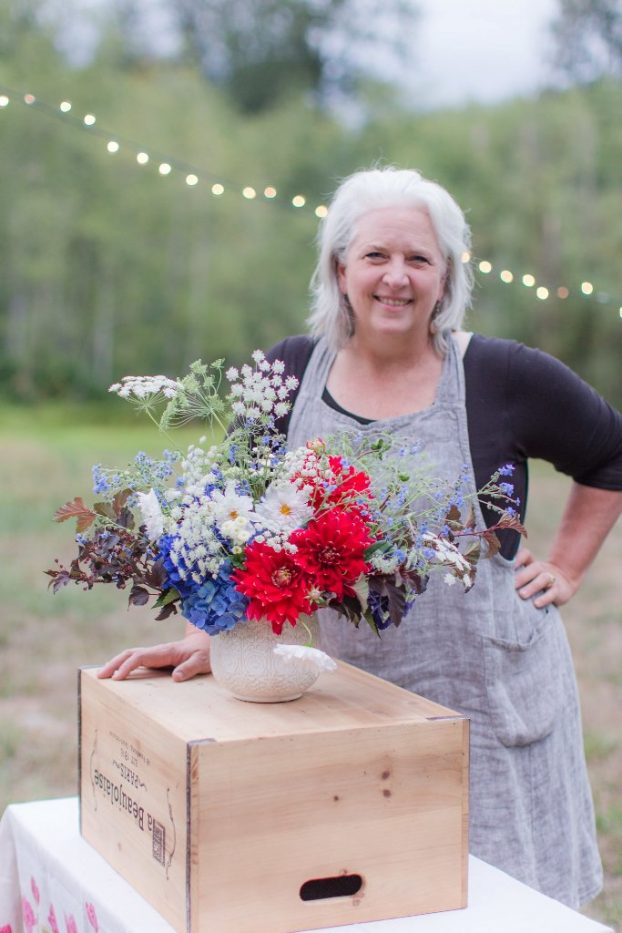
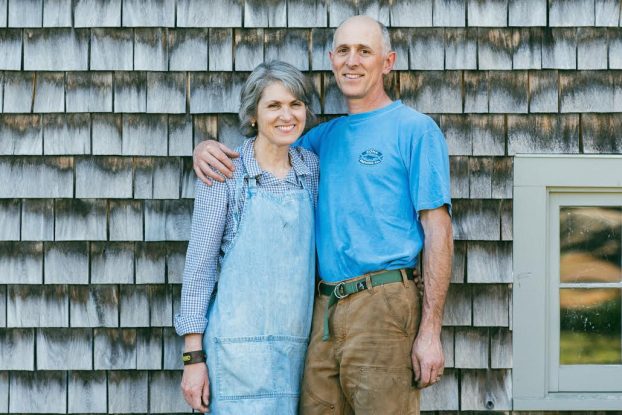
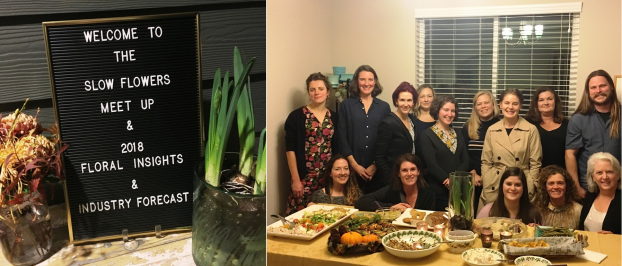
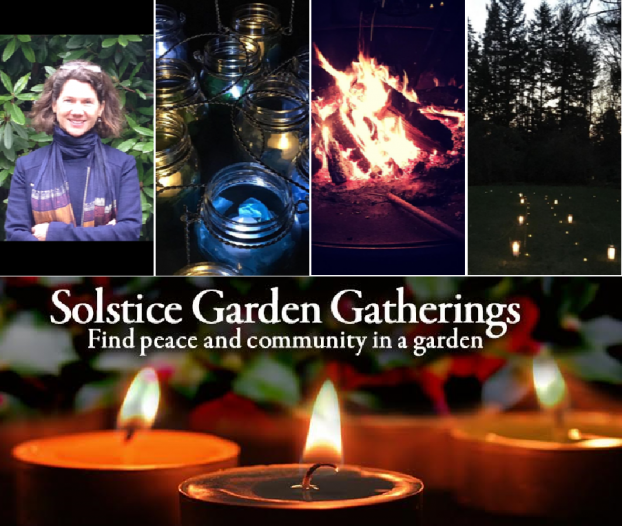
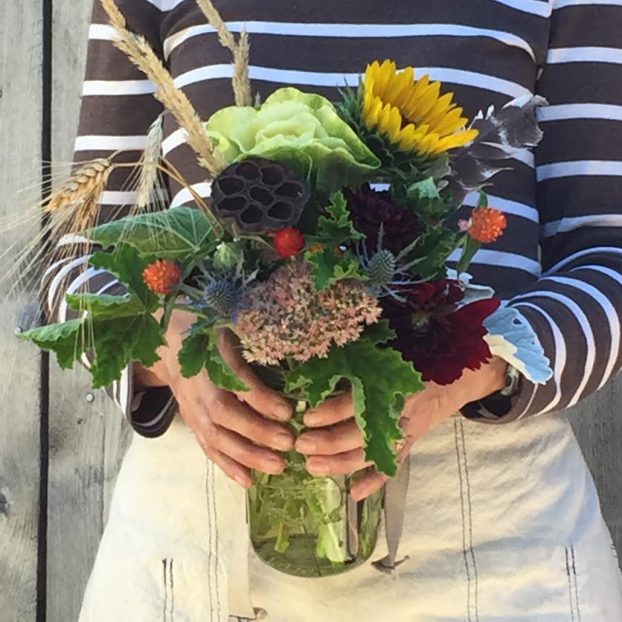
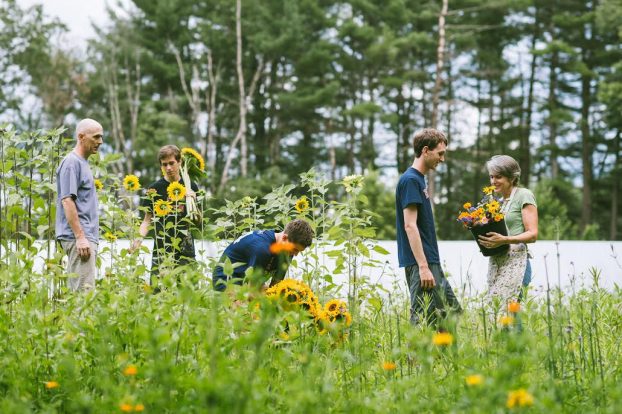
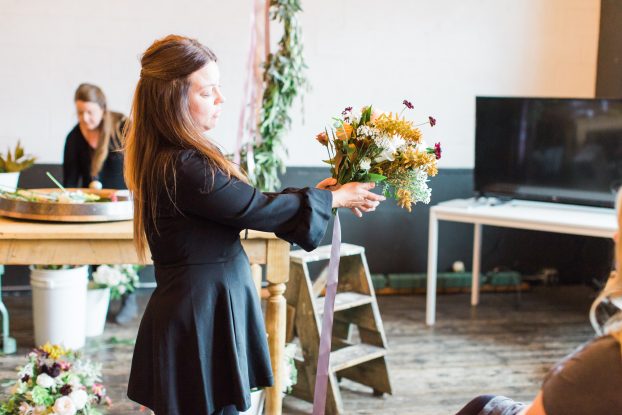
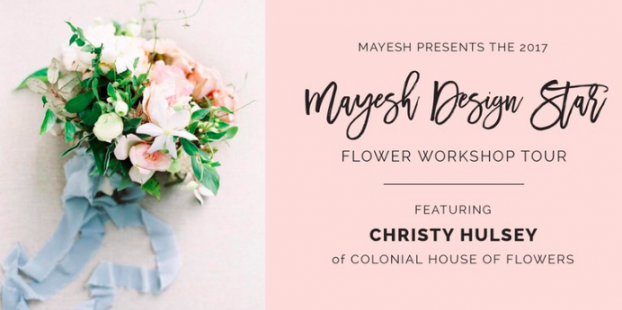
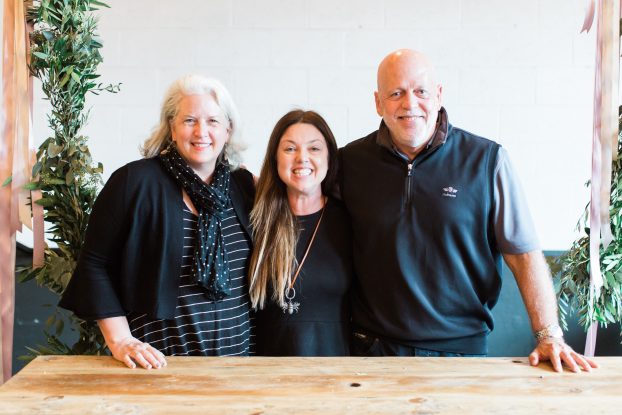
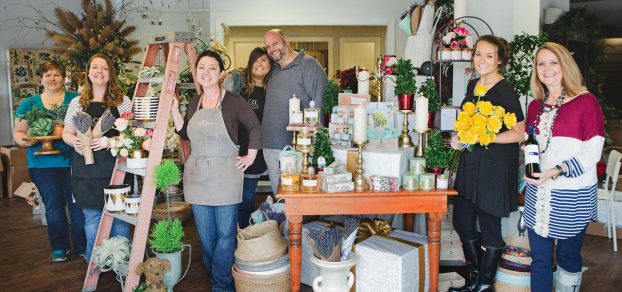
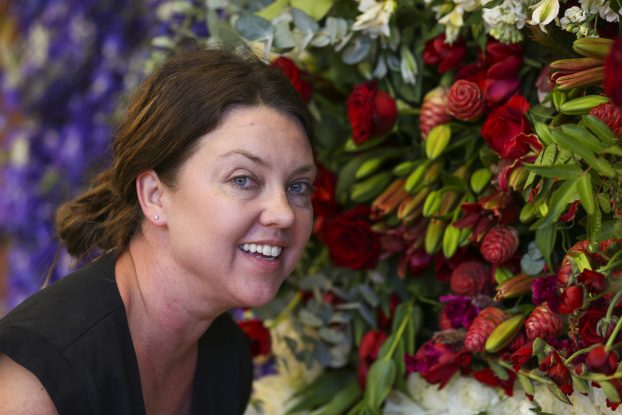
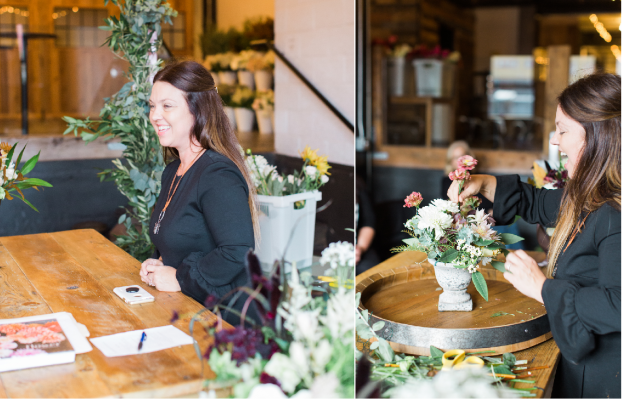
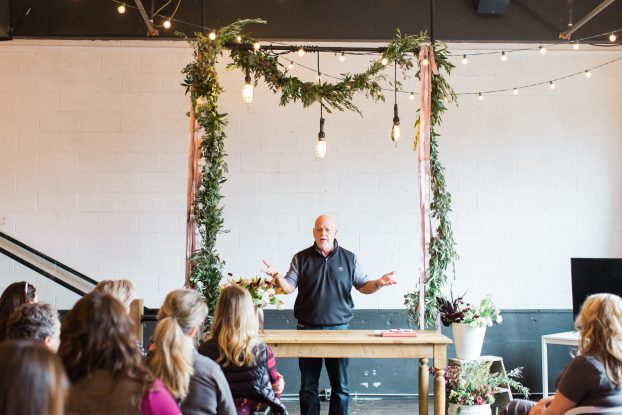
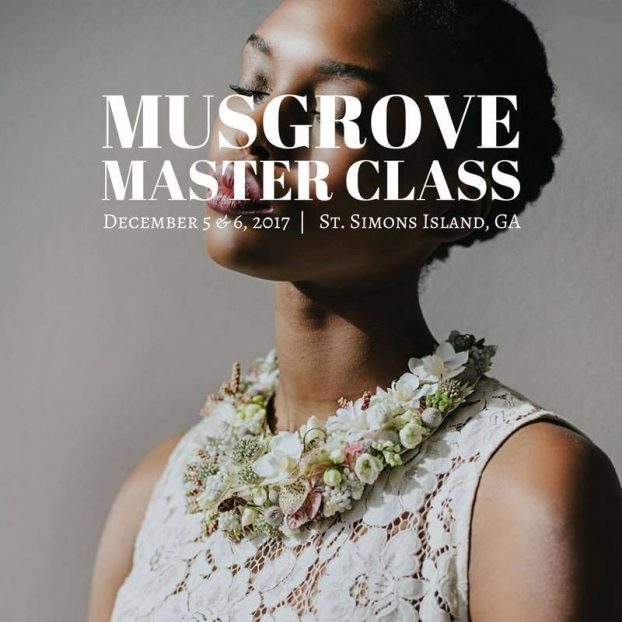
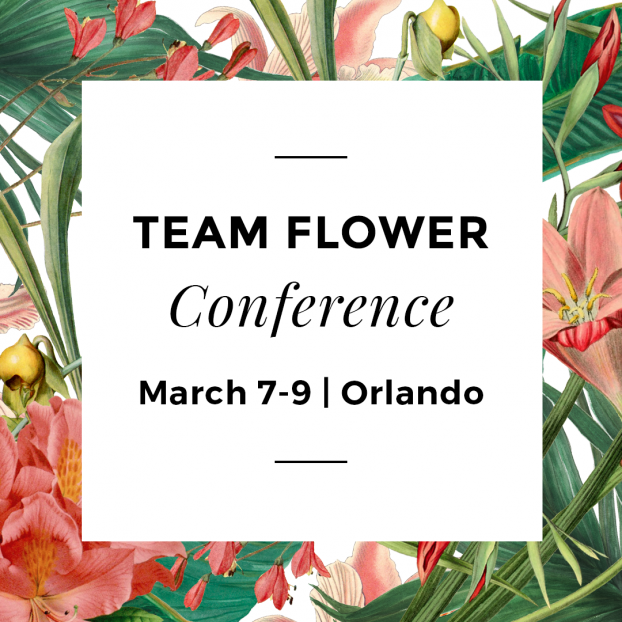
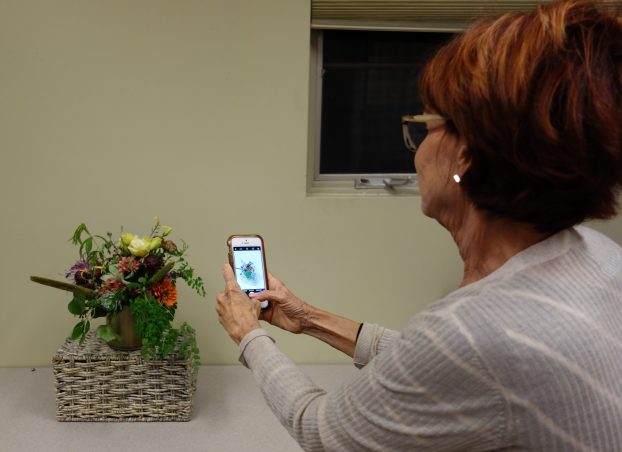
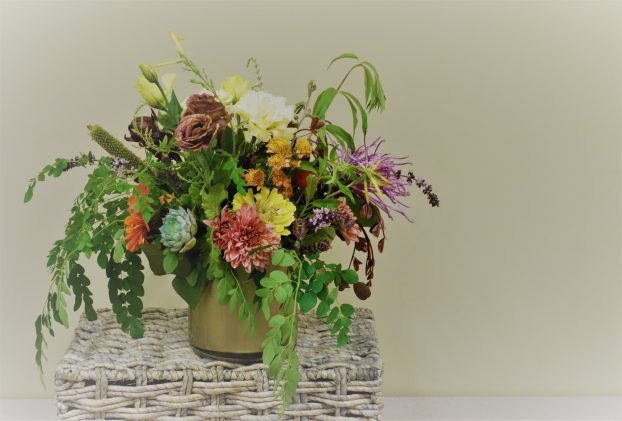
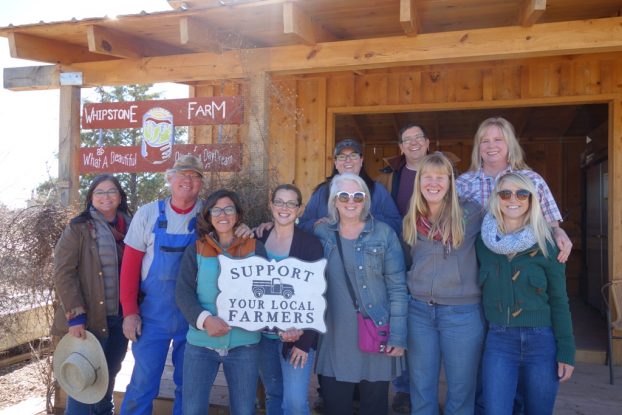
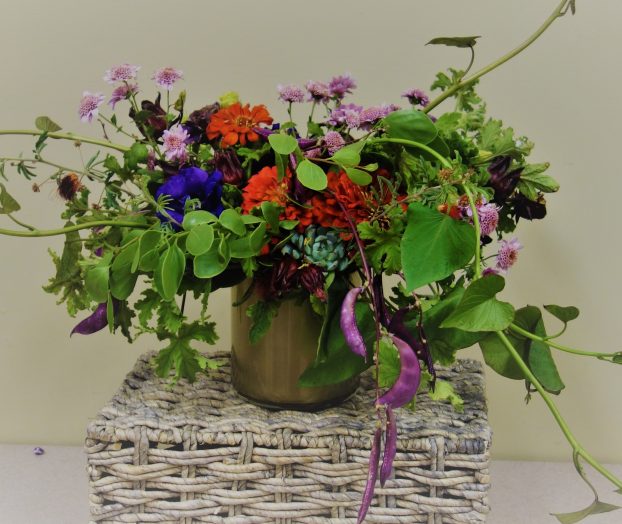
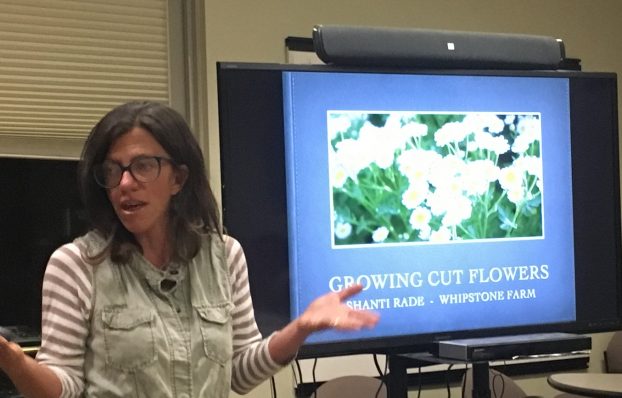
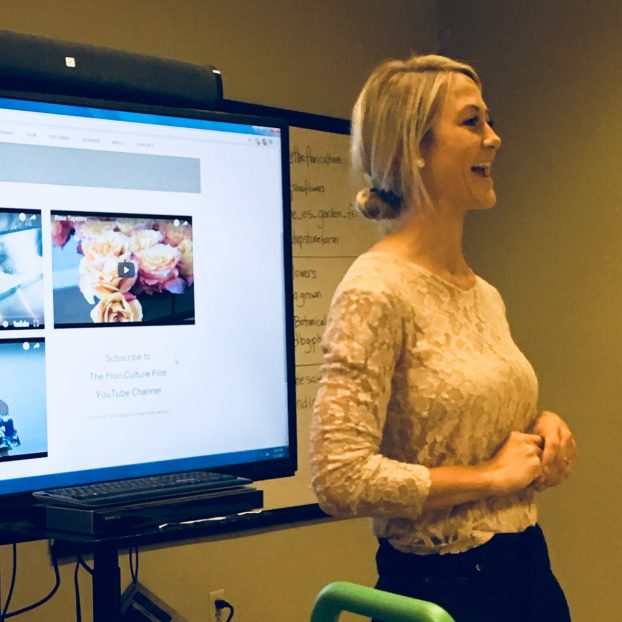
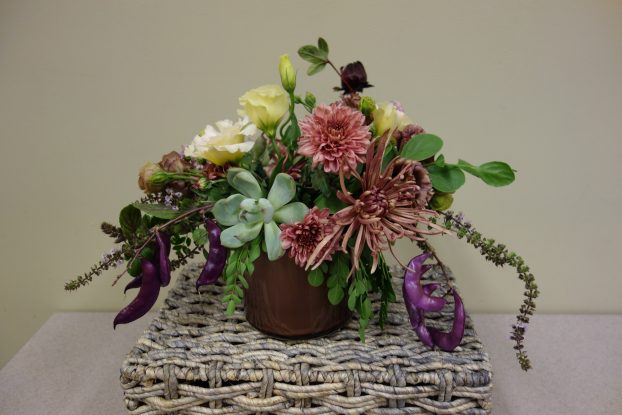
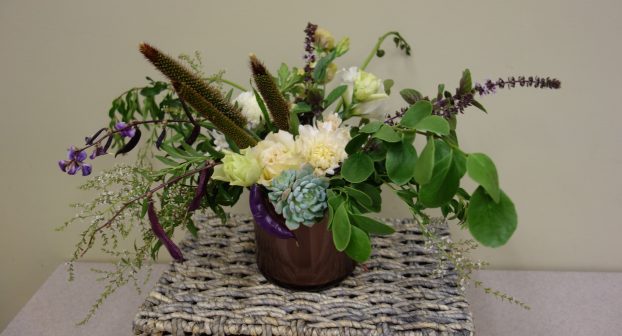
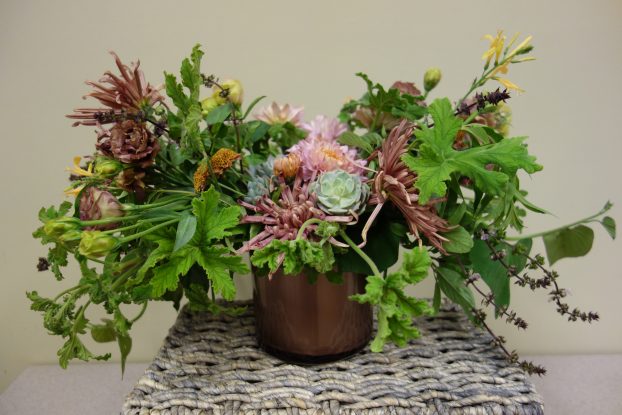
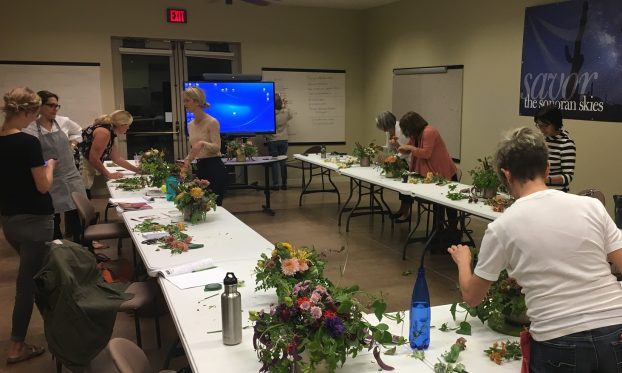
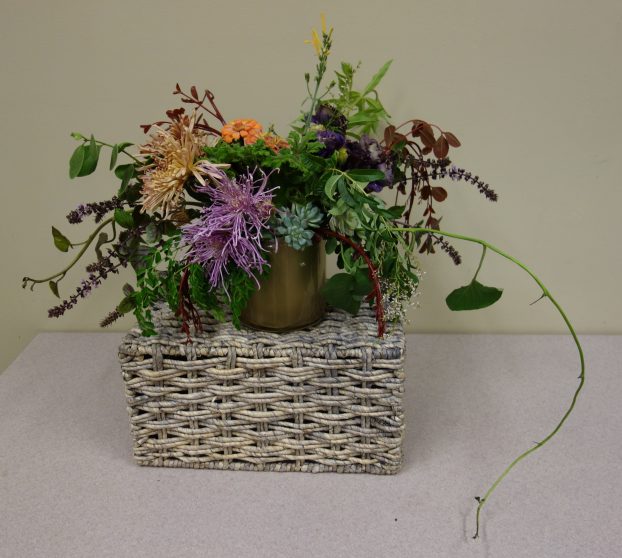
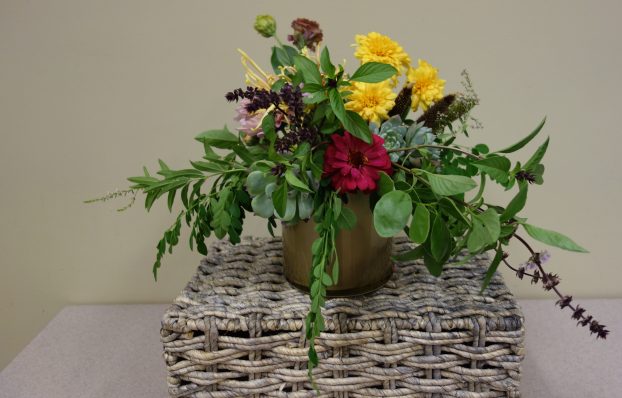 Julie
Julie

